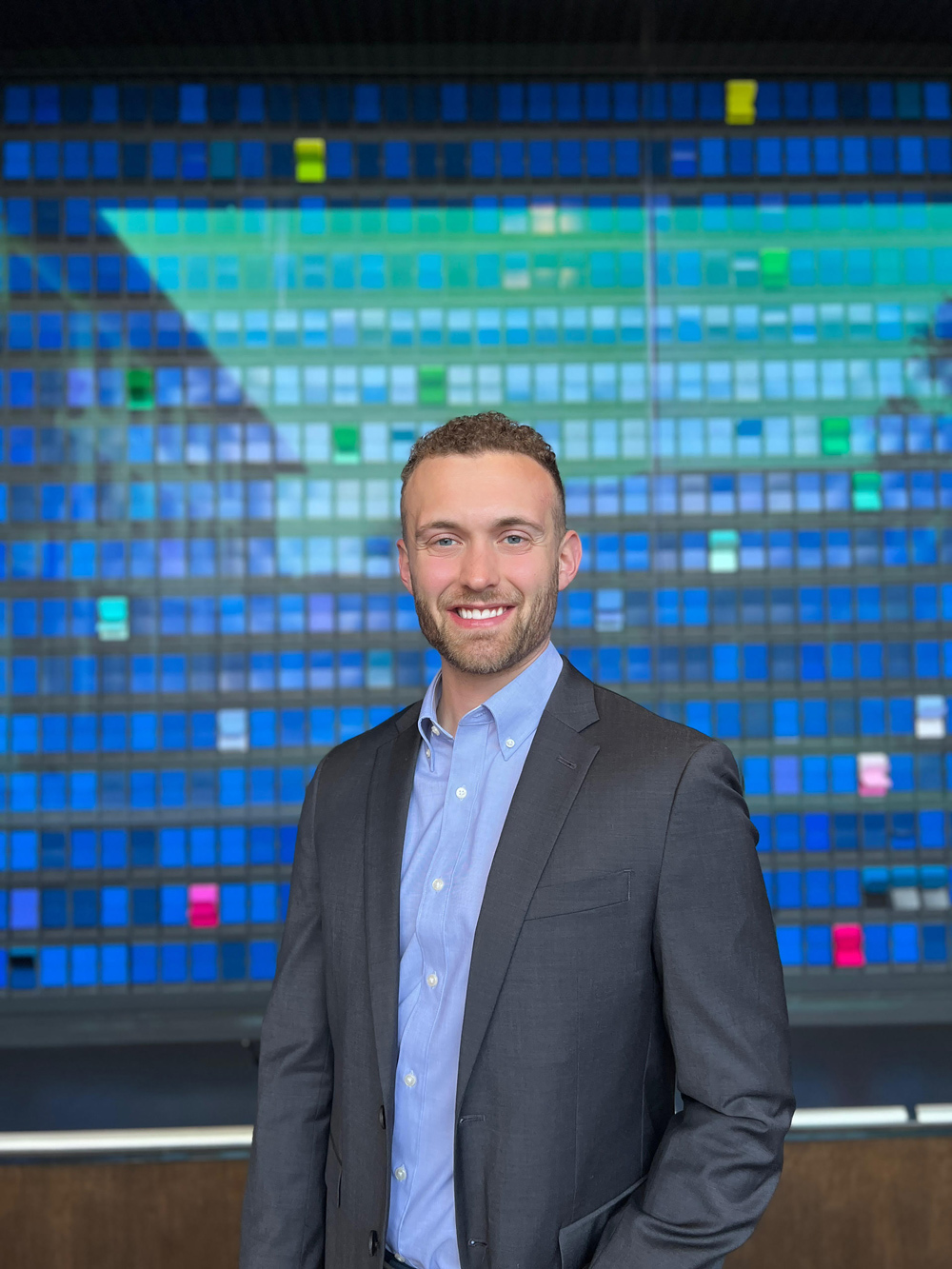
Joe Eilers ’18 is continuing his education and leadership formation at the Stanford Graduate School of Business.
It’s a warm Thursday night in October 2017. Midterms are just around the corner, and there are a million things left to do. Some of my buddies are already at the Peanut Pub, probably with a George’s pizza on the way. But a group of classmates and I are sitting in Vermeer 180, discussing something vital to any college student’s life — the student meal plan. Nothing gets people upset quite like messing with their food, and unfortunately, the new meal plan did just that. From student-athletes to student teachers, every member of the student body was affected differently and students were almost all uniformly unhappy.
Thankfully, the administration was receptive to this feedback. They quickly partnered with the Student Senate to engage with student leaders across campus. As student body president, I worked with the rest of the Senate to conduct interviews across the affected stakeholders. By mapping each group’s specific needs to the operational constraints of Central’s food service team, we were able to provide key recommendations for how to change the meal plan for the better. The very next semester, the meal plan was changed once again, incorporating many of the recommendations. While it certainly wasn’t perfect, it was a positive change on campus led by a group of student leaders.
Nowadays, I find myself in another room full of students on a Thursday night; this time, in a classroom at the Stanford Graduate School of Business where we’re evaluating a business case about an airline company. Suddenly, I find myself having a moment of déjà vu. The class content, work product and relevant customers are all different from what I worked on at Central, but the process of working collaboratively to solve real problems is exactly the same.
With Central’s small class sizes and strong history of academic engagement, students are uniquely positioned to gain leadership experiences that will serve them well over the course of their careers. Whether it was leading as a captain of an athletics team, exploring other cultures during a semester abroad or serving as student body president, these experiences truly shape a person. They set students on a positive trajectory for the rest of their lives. Now, as a student once again, I am reminded of the positive effects of my time at Central.
At Stanford, I am furthering my development as a leader and honing my skills. I get to benefit from some of the best business professionals in the world, and yet I still use the skills I learned in Vermeer 180. From engaging in customer interviews for a startup, to process mapping for my operations class, I find myself constantly using what I learned in Pella, Iowa, to affect change in Stanford, California.
Being part of the Central community changed my life for the better, and serving on Student Senate was core to my Central experience. This is not unique to me, as so many of my classmates were positively affected by the activities they were involved with both in and outside of the classroom. While every member of the Central community is unique in their experience, the outcomes are nearly universally positive.
I encourage all future students to explore every single opportunity at Central, because you never know what might change your life. For current students, focus on the leadership roles you currently hold on campus as pilots for the leadership roles you will have in the future. And for fellow alumni, reflect on your experiences at Central. Your positive impact on the Central community is greater than you think and extends far beyond the borders of campus.
There’s nothing quite like experience, and I believe at the core of my professional growth is my time at Central. I am forever grateful for my time there, and I know I will continue to see the impact of a Central education for the rest of my career.












To encourage serious, intellectual discourse on Civitas, please include your first and last name when commenting. Anonymous comments will be removed.
Comments are closed.